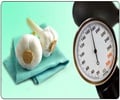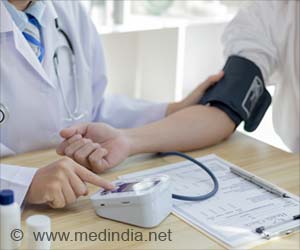Researchers at Wake Forest Baptist Medical Center suggest that the traditional treatment of lowering the systolic blood pressure below 120 mm of Hg provides no additional benefit for patients.

"Our observational study found that treating to low pressures doesn't provide any benefit to patients with regard to reducing risk of dangerous heart events like heart attack, heart failure and stroke. This calls into question the notion that lower is better."
Previous studies had documented a progressive increase in heart disease risk as systolic blood pressure (SBP) rose above 115, but it was not known whether SBP lower than 120 in patients with hypertension (HTN) lowered the risk of heart failure, stroke and heart attack.
In this study, a total of 4,480 participants from the Atherosclerosis Risk in Communities Study were followed for 21 years for development of a cardiovascular event. Measurements of SBP were taken at baseline and at three-year intervals. SBP was categorized as elevated (140 or greater), standard (120 -139) or low (less than 120). The study findings were independent of baseline age, gender, diabetes status, body mass index, cholesterol level, smoking status and alcohol intake. A cardiovascular event was defined as heart failure, ischemic stroke, heart attack or death related to coronary heart disease.
The researchers found that among people with high blood pressure, once SBP is below 140, lowering it below 120 did not further reduce the risk of cardiovascular events. "Our study found that the optimal blood pressure range for people with hypertension is120-139, which significantly reduces the risk of stroke, heart attack or heart failure," Rodriguez said. "These findings suggest that you don't need to go lower than that to have the benefits."
Rodriguez said that his study was not a clinical trial and its results need to be confirmed; noting that a large clinical trial under way called SPRINT should either confirm or refute the findings.
Source-Eurekalert
 MEDINDIA
MEDINDIA




 Email
Email









